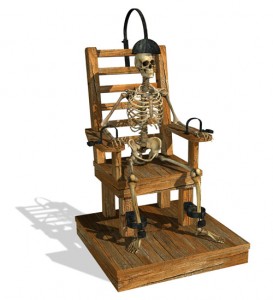Contributed by Jay McDivitt,Grace Lutheran Church, Thiensville, WI
Warm-up Question
When you feel betrayed or bullied, how do you deal with those feelings?
Technology + Betrayal = Ruined Lives
The New York Times recently ran a very long article on the dangerous and relatively new world of “sexting” gone terribly wrong . The article focused primarily on a case in Olympia, WA. A racy cell phone photo went viral when a friend betrayed another friend and sent the photo around the community (and quickly, around the country), combined with nasty names and accusations.
 This feature story is just the latest in a long line of tragic stories of technology combined with betrayal to ruin lives. At the beginning of this school year, a spate of cyber-bullying cases around the country – particularly targeted at lgbt people – led to suicides. That rash of bullying led to a massive video campaign (“It Gets Better”), in which ELCA Presiding Bishop Mark Hanson participated. In March the White House launched a significant campaign to combat cyber-bullying, and states across the country are taking up legislation to control “sexting” and other technologies which can be devastating to young lives.
This feature story is just the latest in a long line of tragic stories of technology combined with betrayal to ruin lives. At the beginning of this school year, a spate of cyber-bullying cases around the country – particularly targeted at lgbt people – led to suicides. That rash of bullying led to a massive video campaign (“It Gets Better”), in which ELCA Presiding Bishop Mark Hanson participated. In March the White House launched a significant campaign to combat cyber-bullying, and states across the country are taking up legislation to control “sexting” and other technologies which can be devastating to young lives.
People have always been bullies. And contrary to what many of us might think, it’s not just kids who find themselves betrayed by friends, bullied for being different, abandoned, or left out. When love is lost or jealousy takes over, people of all ages deal with all the deadly emotions that come to the surface – and often turn to hurting other people to make themselves feel better.
Bullying and betrayal are nothing new; it’s just that technology has magnified the effect, scope, and duration of the pain inflicted. Digital pictures can be sent to billions of people with a few clicks of a button – and they can stay on phones, servers, and hard drives forever. Every good tool can be used as a weapon, and available technology has made it possible, with very little effort, to inflict lasting and devastating harm in an instant.
Discussion Questions
- Do you know anyone who has bullied or been bullied online or via cell phone? Do you know people who once were friends but turned against each other? (You’ll probably want to change names to protect both the guilty and the innocent…)
- Do you think there should be some legal controls on how young people use technology? How should the legal system, schools, parents, or others deal with the rise in things like “sexting”?
- How can you be helpful when people are being bullied or betrayed? What is your role as a Christian when people are using technology (or just good old-fashioned words) to make life hell for other people?
Scripture Texts (NRSV) for Sunday, April 17, 2011 (Sunday of the Passion)
(Text links are to Oremus Bible Browser. Oremus Bible Browser is not affiliated with or supported by the Evangelical Lutheran Church in America. You can find the calendar of readings for Year C at Lectionary Readings.)
For lectionary humor and insight, check the weekly comic Agnus Day.
Gospel Reflection
This is one very long story. In all four Gospels, Jesus’ “Passion” (the events from his betrayal, through arrest and trial, to his death on a cross) is by far the longest story. This story, full of heartbreak, may be the most familiar story in Christian life, but that doesn’t make it easy to read.
Part of why this is such a hard story to hear is because it is so full of terrible things that hit close to home for most people. Think about it. How many people do you know who have
- been betrayed by one of their closest friends, sold out for chump change, popularity, or prestige (26:14-16, 20-25, 47-50);
- been deserted and abandoned by friends when friends were needed the most (26:40-45);
- been falsely accused (26:59-62, 27:11-14);
- had a friend pretend they didn’t know or like them at all – just to fit in (26:69-75);
- been abused, teased, called names (27:39-44);
- felt like God was nowhere to be found in the midst of struggle (27:46)?
The vicious beating and excruciating death may not be common in the halls of your school, but it is a reality all over the world in places where powerful people abuse, mistreat, and kill with impunity those who challenge or oppose them. This is, literally, one Hell of a story. And as the awful scene unfolds, it’s impossible not to find ourselves in almost every character’s sandals.
So what’s the good news in this endlessly scary story? Hanging on the cross is One who knows intimately everything we know and experience – and much more. Jesus has walked in our shoes. He knows what it is to be betrayed, abandoned, mocked, teased, and deserted. He knows what it is to doubt and to struggle to see God’s face in the midst of tragedy and loneliness. He knows our story and he carries all our loss and grief in his own body into the grave.
We know how the story ends. “It Gets Better” is a grand understatement for the triumph of Easter morning. But for many of us and our neighbors Easter dawn isn’t quite here yet. We still carry the stories of betrayal, loss, loneliness and grief with us as we begin this Holiest of Weeks. Without the brilliance of the empty tomb the cross feels meaningless. Until Easter breaks perhaps this is enough: You are not alone. Ever. Jesus knows what you’ve been through, knows who you are, and walks with you and for you in the midst of whatever awful things you experience. He’s been there. He’s there right now. And he will not leave you until it all gets better.
Discussion Questions
- To what character or moment in the Passion story do you most relate? Where do you find yourself in this story?
- Why do you think the writer of Matthew spends so much time telling this story?
- For most churches, this story is told on the same day that we tell the story of Jesus entering Jerusalem on a donkey (two donkeys in Matthew…weird, I know) and being greeted by joyous and worshipful crowds of people waving palm branches. Not much time passes between that story and the story of betrayal and death. When have you experienced such a sudden change or turn in your life or the life of someone you know?
- When life is hard, is it helpful to know that Jesus has been there, too? Is that enough? What do you need to hear when you’re living through grief or pain or confusion or loss?
Activity Suggestions
Find or make wallet-sized cards (business card size). Each person makes 2 or more cards. Write “You are not alone” on the card. Add some Bible verses or other words of encouragement. If possible, laminate them. Then think to yourself about a person who may need to hear this good news – someone who is being bullied or left out, someone who has lost friends or changed schools, someone who needs a friend. Pick someone you plan to give one of your cards to. Carry the other one around with you – for encouragement when you’re feeling lost or lonely, or to give away the next time you see someone hurting.
Think of another way to share the good news that “you are not alone” with someone who needs it. Talk with the group about what would be a meaningful or effective way to tell people that they are not alone – that it will get better. How can you be Jesus for someone who has been betrayed?
Closing Prayer
Jesus, you know me and you love me with your whole life. Help me to know and feel your presence when I feel lost or abandoned; then help me to share this good news with all those who are desperate for a word of hope. Amen.




